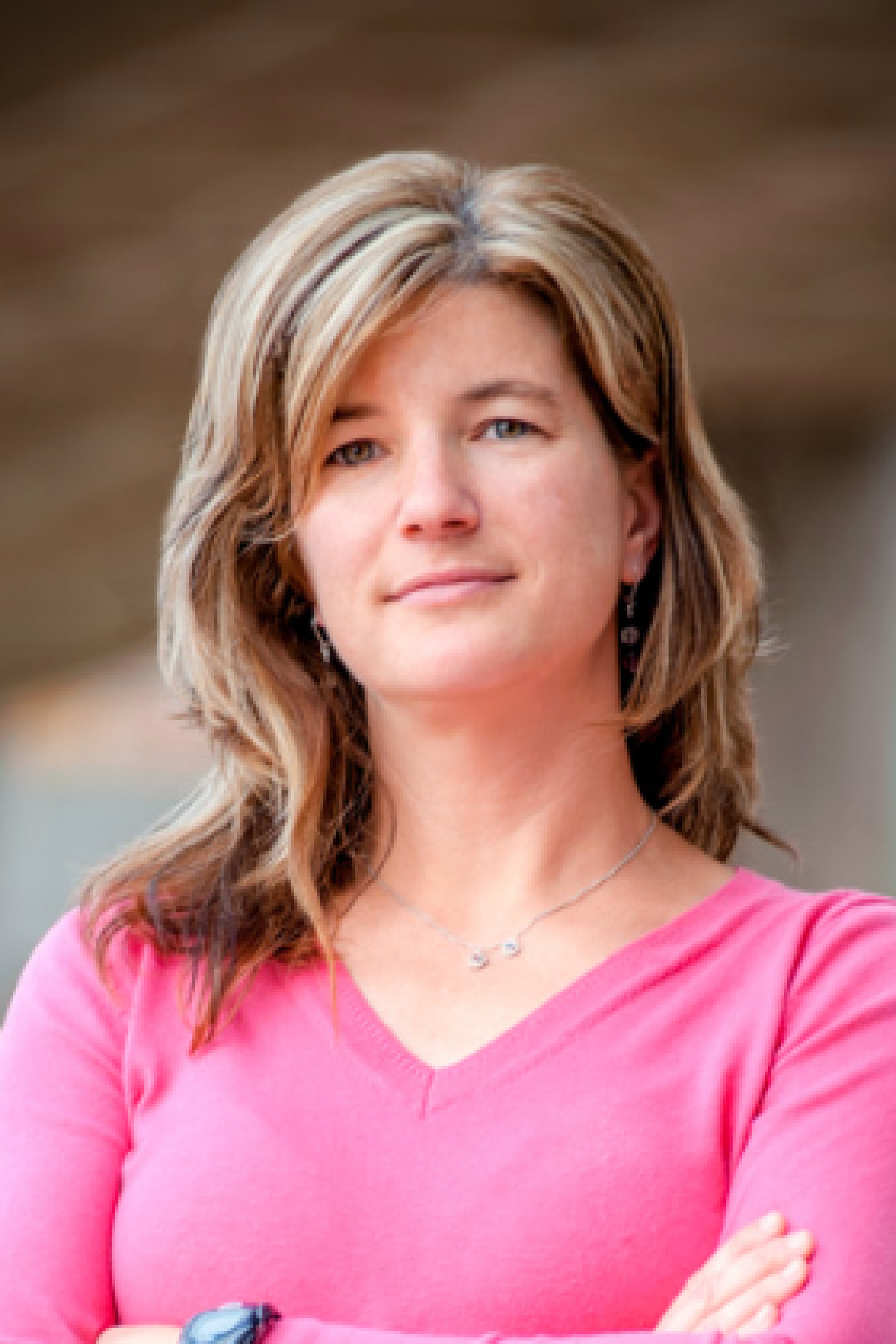Virginia L. Ferguson
- Professor
- Hudson Moore Jr. Chair in Engineering
- Associate Chair, Research
- Biomedical, Mechanics of Materials, Materials

Office Location: ECES 148
Lab Location: ECES 1B17
Research Interests
Nano-scale characterization of materials, biological tissue
Dr. Ferguson is an expert in soft-hard tissue (e.g., osteochondral) interface tissue mechanics; nano- and micro-indentation of bone, soft tissues, and hydrogels for tissue regeneration; and in how aging, disuse, and metabolic disease detrimentally alter quality of the materials that make up bone and other musculoskeletal tissues. Her lab also draws inspiration from biological materials and structures to form novel engineered materials, using advanced manufacturing techniques for tissue regeneration. She has led two National Science Foundation Major Research Instrumentation awards for instruments and established the MIMIC core facility to house these tools and to broadly enable multimodal imaging and multiscale mechanical materials characterization.
Select Publications
- Fischenich KM, Wahlquist JA, Wilmoth RL, Cai L, Neu CP, Ferguson VL. Human articular cartilage is orthotropic where microstructure, micromechanics, and chemistry vary with depth and split-line orientation. Osteoarthritis Cartilage. S1063-4584(20)31058-X (2020).
- Smith RC, Cramer MS, Mitchell PJ, Lucchesi J, Ortega Am, Livingston EW, Ballard D, Zhang L, Hanson J, Barton K, Berens S, Credille K, Bateman TA, Ferguson VL, Ma L, Stodieck, LS. Inhibition of myostatin prevents microgravity-induced loss of skeletal muscle mass and strength. PLoS ONE 15(4): e0230818. (2020).
- Heveran CM, Schurman CA, Acevedo C, Livingston EW, Howe D, Schaible EG, Hunt HB, Rauff A, Donnelly E, Carpenter RD, Levi M, Lau AG, Bateman TA, Alliston T, King KB, Ferguson VL. Chronic kidney disease and aging differentially diminish bone material and microarchitecture in C57Bl/6 mice. Bone. 127:91-103 (2019).
- Aisenbrey EA, Tomaschke A, Kleinjan E, Muralidharan A, Pascual‚ÄêGarrido C, McLeod RR, Ferguson VL, Bryant SJ. A Stereolithography-Based 3D Printed Hybrid Scaffold for In Situ Cartilage Defect Repair. Macromolecular Bioscience 18(2) (2018).
- Stender ME, Reguiero RA, Ferguson VL. A poroelastic finite element model of the bone—cartilage unit to determine the effects of changes in permeability with osteoarthritis. Comput Methods Biomech Biomed Engin, 20(3):1-13, (2017).
Select Award and Honors
- 2022 - American Institute for Medical and Biomedical Engineering College of Fellows
- 2018 - Hudson Moore Endowed Professor, College of Engineering and Applied Science, University of Colorado
- 2020 - Faculty Success Program, FSP, National Center for Faculty Development and Diversity, Awarded Scholarship to Attend Spring 2020 FSP from Leadership Education for Advancement and Promotion, University of Colorado
- 2020 - Innovative Grant Program Recipient for Inflammation-Induced Degeneration of Uterosacral Ligaments in Pelvic Organ Prolapse, Research and Innovation Office, University of Colorado
- 2018-2019 - BOLD Center Faculty Fellow, College of Engineering and Applied Science, University of Colorado
- 2016-2017 - Faculty Leadership Institute, University of Colorado
- 2015 - Orthopaedic Research Society Collaborative Exchange Award
- 2013 - Innovative Seed Grant Award for Thermal Fusion in Arteries, University of Colorado
- 2013 - Dean’s Faculty Fellowship Award, College of Engineering and Applied Science, University of Colorado
- 2012 - Implementation of Multicultural Perspectives and Approaches in Research and Teaching (IMPART) Faculty Fellowship Award Program for "Assessing the role of trust in mentored engineering research experiences", Office of Diversity and Equity, University of Colorado
- 2011 - National Science Foundation Faculty Early Career Development (CAREER) Award
- 2010 - Chancellor's Faculty Award for Excellence in STEM Education for “Assessing YOU’RE@CU: A New Program to Promote Diversity in Engineering”, University of Colorado
- 2007 - Junior Faculty Development Award (JFDA), Council on Research and Creative Work; University of Colorado
- 2006 - Leadership, Excellence, Achievement, and Diversity Alliance (LEAD) Faculty Appreciation Award, University of Colorado
- 2006 - Council on Research and Creative Work (CRCW) Seed Grant Recipient; University of Colorado

